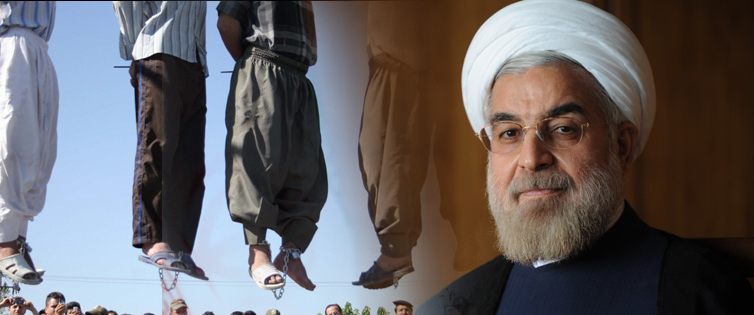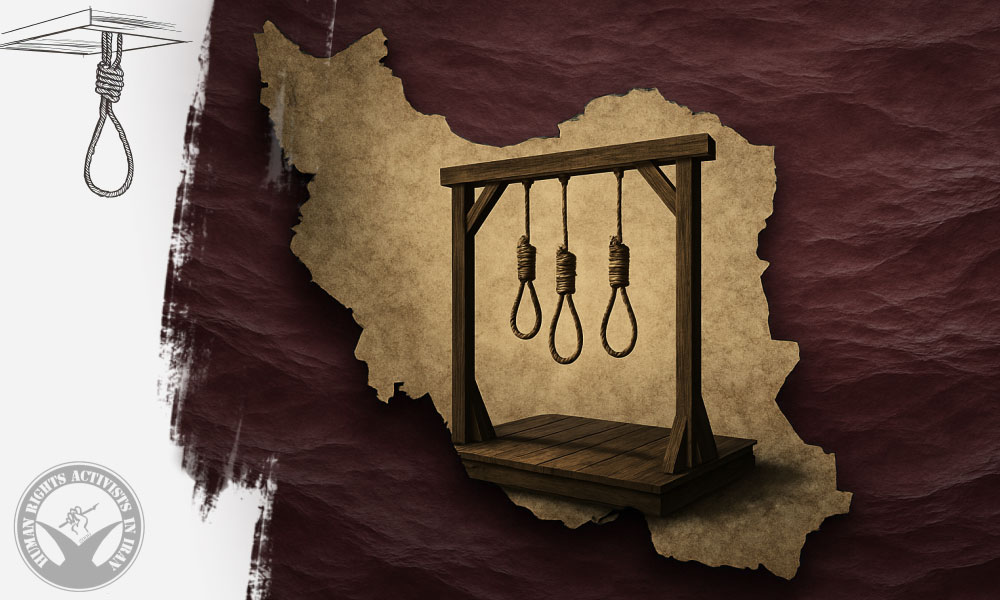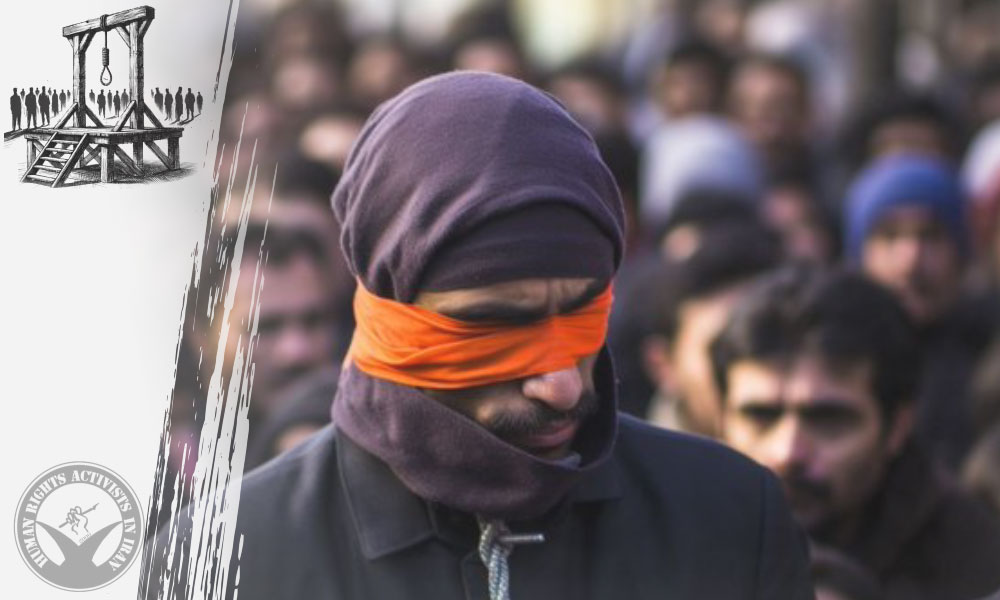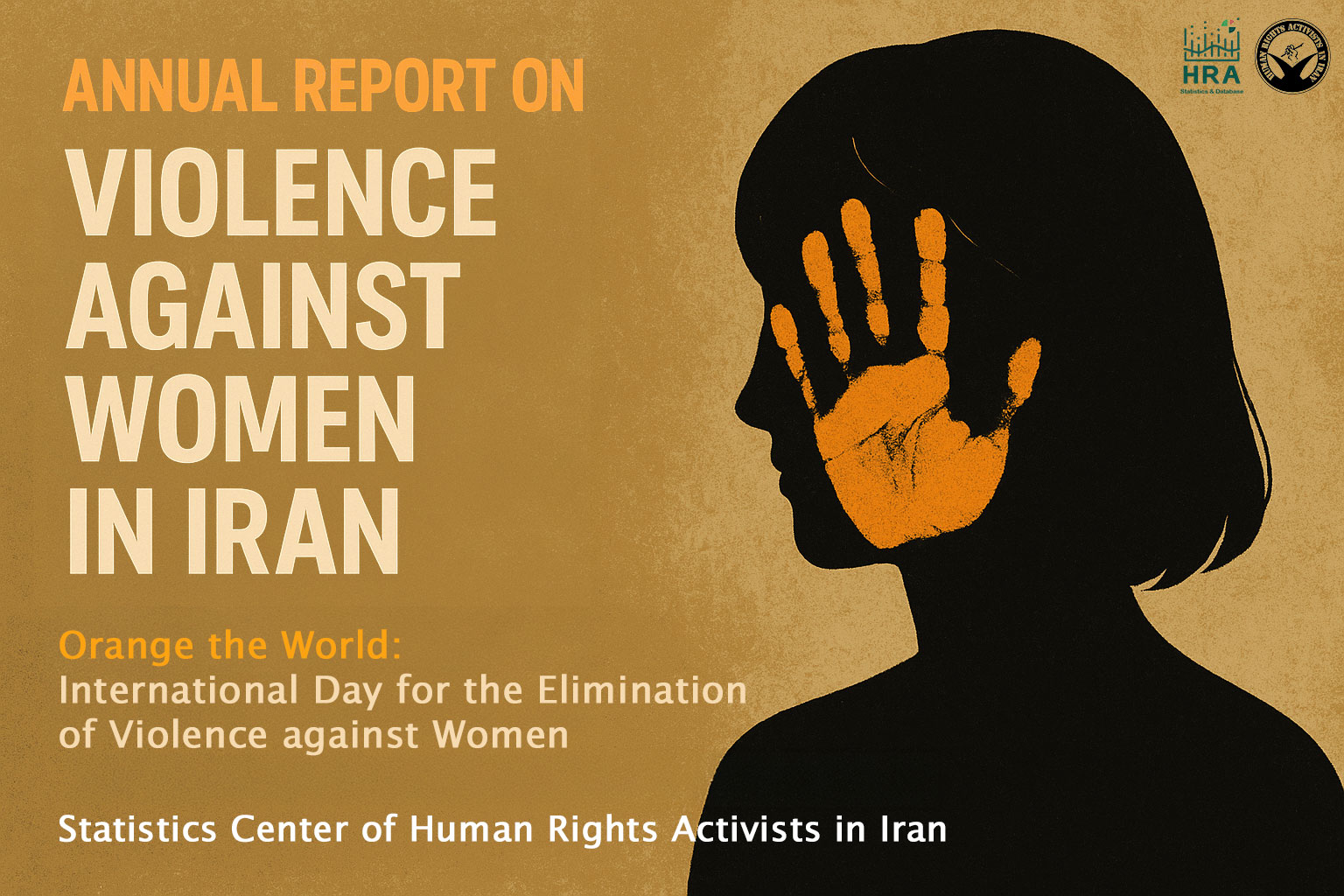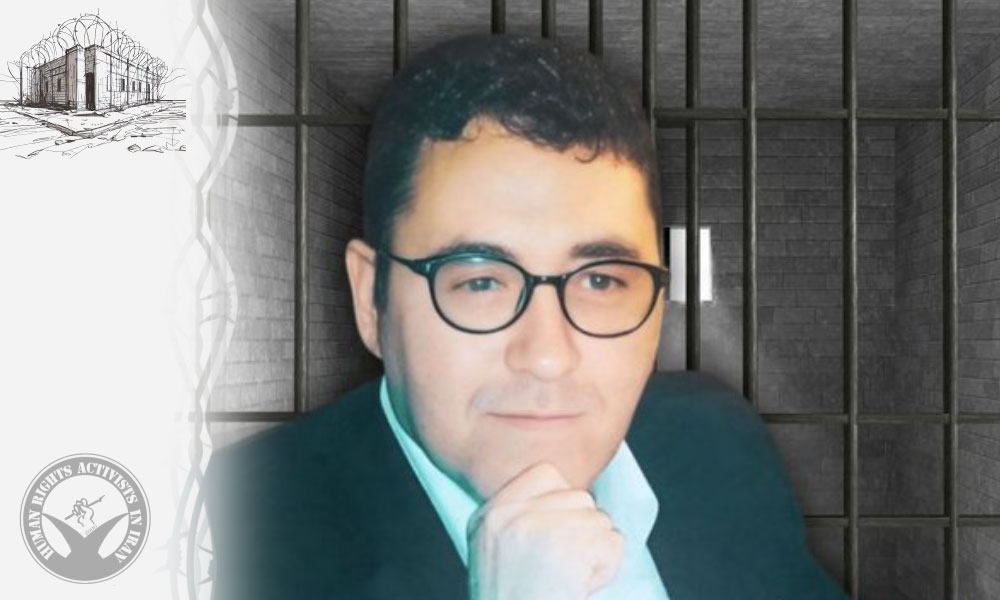Iranian President Hassan Rouhani repeatedly touts his commitment to “constructive engagement” with the international community, particularly as he negotiates a comprehensive nuclear agreement. Yet, as nuclear talks resume this week, the systematic and widespread violations of human rights in Iran continue unabated, overshadowed — if not sanitized — by the myopic international focus on the nuclear issue.
It should be recalled that when the U.S. negotiated an arms control agreement with the Soviet Union in 1975, it did not turn a blind eye to the USSR’s human rights abuses. Instead, the Helsinki Final Act linked the security, economic, and human rights “baskets” with human rights emerging as the most transformative of the three. Negotiations with Iran should replicate this approach.
The latest report by Dr. Ahmed Shaheed — the U.N. Special Rapporteur on the situation of human rights in Iran — provides an inventory of continuing human rights abuses that remain unaddressed, even under Iran’s new “moderate” leadership.
Accordingly, the ongoing nuclear negotiations should neither distract nor deflect from addressing and redressing the Iranian regime’s massive domestic repression.
The following constitutes an overview of the serious human rights abuses in Iran, and a corresponding set of queries that will serve as a litmus test for the authenticity of Rouhani’s commitment to justice and human rights for the Iranian people.
1. Executions
Prior to Rouhani’s rise to power, Iran had the highest per capita execution rate in the world. Yet, the alarming rate of executions has actually increased under Rouhani, with more than 600 executions having been carried out since his ascension to the Presidency in August 2013 — with 20 executions during the week of his November “charm offensive” at the United Nations, a fact largely ignored — while the recent execution binge has witnessed over 250 executions carried out since the beginning of 2014 alone.
Indeed, in a joint statement, Dr. Shaheed — along with the Special Rapporteur on extrajudicial, summary or arbitrary executions, Christof Heyns — called on the Government of Iran to “urgently halt the abrupt surge in hangings in the country since the start of 2014.”
Moreover, this most recent “judicial killing spree” has been organized and implemented at the highest levels of the Iranian regime with Rouhani reported to have personally approved the executions of 14 human rights activists.
Query: Will Rouhani declare an immediate moratorium on executions and commute all current death sentences?
2. Torture
Dr. Ahmed Shaheed — who will soon appear before the Canadian Foreign Affairs Subcommittee on International Human Rights, which I co-chair — has documented the horrific treatment that Iranian prisoners endure.
Dr. Shaheed has found that physical torture, including beating, whipping, and assault, occurs in 100 per cent of cases; sexual torture, including rape, molestation, and violence to genitals, occurs in 60 per cent of cases; and psychological and environmental torture, such as solitary confinement, are also “highly prevalent.”
One shocking example of the rampant violence perpetrated against Iranian prisoners is the brutal raid by prison officials against Evin Prison inmates on April 17. According to independent investigations carried out by the International Campaign for Human Rights in Iran, dozens of security officials — reportedly backed by the IRGC and Intelligence Ministry agents — used “extreme violence” during searches of cells in the notorious Ward 350, which houses political prisoners, with more than 30 detainees seriously injured.
Not only has Rouhani remained silent about the crimes committed in Ward 350, but he has promoted the head of the Iran Prisons Organization – Gholam Hossein Esmaili — to the position of Director General of the Justice Department in Tehran Province.
Query: Will Rouhani publically condemn the recent attack against inmates at Evin prison and put an end to the widespread use of torture by Iranian officials?
3. Political prisoners
According to Dr. Shaheed’s recent testimony, there are at least 895 “prisoners of conscience” and “political prisoners” incarcerated in Iran. Among them, as described by Dr. Shaheed himself, are political activists, religious practitioners, human rights defenders, civic activists, student activists, journalists, and other leaders of civil society.
As Iranian Nobel Peace laureate Shirin Ebadi put it,”Nearly all of the opposition activists in prison before Rouhani was elected are still in prison.”
Although Rouhani did free a number of political prisoners in the run-up prior to his September appearance at the U.N. – including iconic human rights lawyer Nasrin Sotoudeh — the cosmetic freeing of individual prisoners should not overshadow the ongoing painful reality of the criminalization of innocence. Simply put, those that prosecute and persecute must be held to account.
Moreover, despite having finally released Sotoudeh, the regime continues to harass and intimidate her, and others who seek to bring attention to the massive domestic repression of human rights in Iran. For example, three months after her release from Evin Prison in September 2013 — and two weeks after her meeting with a European Parliament delegation to present her with the Sakharov Prize for Freedom of Thought — Ms. Sotoudeh found her apartment raided and ransacked. Moreover, at the end of March, Sotoudeh found herself arbitrarily summoned to the Intelligence Ministry for questioning.
Another dramatic case study of wrongful imprisonment is that of Abdolfattah Soltani, a leading Iranian human rights lawyer who was arrested in 2011 and is serving a 13 year sentence based on false and absurd charges that include “being awarded the 2009 Nuremberg International Human Rights Award”, “interviewing with media about his clients’ cases”, and “co-founding the Human Rights Defenders Center.” According to Soltani’s daughter, as reported by the International Campaign for Human Rights in Iran, he is currently in critical condition and has been denied medical care for months now.
Query: Will Rouhani release the remaining political prisoners and will he cease and desist from any criminalization of innocents.
4. Persecution of the Baha’i
The Baha’i are routinely imprisoned for practicing their faith, and this month marks the start of their seventh year of incarceration for the group of seven Baha’i leaders; their 20 year sentences amount to a death sentence for some owing to their advanced age.
Despite President Rouhani’s professed commitment to greater tolerance of religious minorities, Supreme Leader Ayatollah Khamenei has issued a fatwa calling on Iranians to avoid any interactions with members of the Baha’i faith, whom he maligned as a “deviant and misleading sect.”
In his most recent report, Dr. Shaheed expounded on the plight of the Baha’i, whom he described as being “almost exclusively prosecuted for participation in their community affairs.”
The Iranian regime’s systematic persecution of the Baha’i has also resulted in widespread religiously motivated hate crimes against them, with none of the attackers yet prosecuted or brought to justice.
Query: Will Rouhani end the persecution of the Baha’i? Will he accept them as full members of Iranian society, hold to account those who commit violence against them, and allow them to practice their faith openly?
5. Persecution of other religious and ethnic minorities
The Iranian regime also incites hatred and violence against other religious and ethnic minorities, violating their political, social, religious, economic, cultural, linguistic and educational rights. Among other abuses, minority schools and houses of worship have been closed or destroyed, restrictions have been imposed on both the public and private use of minority languages, and members of minority groups — including the Baloch, Kurds, Ahwazi Arabs, and Christians — have been imprisoned on spurious charges such as “spreading corruption on earth.” Moreover, Human Rights Watch’s latest World Report documents at least 40 Kurdish prisoners who have been sentenced to death for ‘national security’ crimes such as Moharebeh (enmity against God).
Iranian-American Pastor Saeed Abedini — who was sentenced on January 27, 2013 to eight years imprisonment on trumped up charges of “intending to disrupt Iranian national security by establishing a network of Christian house churches” — a conviction upheld on “appeal” — is reportedly suffering chronic pain as a result of numerous beatings at the hands of prison officials.
Query: Will Rouhani end the oppression of minorities and free Pastor Abedini, who remains incarcerated in an Iranian prison because of his faith?
6. Persecution of Women
While Rouhani has spoken eloquently of gender equality — and Article 20 of the Iranian constitution purports to protect it — women face widespread and systematic discrimination in education, employment, state benefits, family relations and access to justice.
The Iranian civil code compels women to obey their husbands; married women may not leave the country without their husbands’ consent; the severity of punishment for some crimes under Iranian criminal law differs based on the gender of the accused; honour killings — of which girls and women are the primary victims — go unpunished; and there is a dearth of women in decision-making roles.
Query: Will Rouhani follow through on his promise to improve women’s rights, ensure gender equality, and establish Iran’s first Ministry of Women?
7. Persecution of lesbian and gay people
Iranian law criminalizes same-sex relations and allows the courts wide discretion in determining sentences, which can include corporal and even capital punishment. As Dr. Shaheed has reported, many LGBT Iranians are victims of discrimination and violence, but do not report their victimization to the authorities out of fear that they will themselves be charged with a criminal offence.
Query: Will Rouhani decriminalize same-sex relations and end discrimination on the basis of sexual orientation and gender identity?
8. The Persecution of Journalists and the Assault on Free Speech
Even under Rouhani, Iran continues to imprison more journalists than almost any other country.
Indeed, the regime continues to regularly arrest journalists and bloggers, imprisoning them without charge or trial or under trumped up charges such as “propagating against the system” or “insulting the President.” In addition, many journalists report that the regime intimidates and harasses their families in an effort to pressure them into discontinuing their work, recalling that last June’s election was marked by the monitoring and censoring of internet activity, the blocking of access to opposition websites and e-mail accounts, and a roundup of members of the press.
Moreover, dozens of journalists who were arrested during the crackdown that followed the 2009 fraudulent Presidential election remain incarcerated. One example is Kayvan Samimi, the Editor-in-Chief of the banned newspaper Nameh, who was arrested one day after the disputed 2009 election and is serving multiple consecutive six-year sentences.
Query: Will Rouhani end the systematic harassment, intimidation, and detention of journalists and permit free expression and freedom of the press, including criticism of his regime?
9. Assault on the rule of law and the independence of the judiciary
There is a complete absence of judicial independence and rule of law in Iran. Indeed, the entire legal system is designed to enable and enforce the regime’s massive repression of human rights.
In this regard, it is outrageous that Rouhani’s appointee as Justice Minister is Mostafa Pour-Mohammadi — a man implicated in a litany of major human rights violations, including the 1988 massacre of 5,000 political prisoners.
Moreoever, Pour-Mohammadi has recently declared publically that Mir Hossein Mousavi and Mehdi Karroubi — the 2009 reformist Presidential candidates who have been under house arrest since February 2011 – should “remain restricted” without trial.
Indeed, Mousavi, who has been extra-judicially detained under house arrest for more than three years and has been denied adequate medical treatment, was taken two weeks ago to hospital for urgent cardiac problems.
Dr. Shaheed estimates that some 40 lawyers have been detained since 2009. Any hope that matters would improve under Rouhani has clearly been repudiated by the appointment of Pour-Mohammadi as Justice Minister, as well as Elham Aminzadeh – a long-time apologist for Iran’s human rights record — as Vice President for Legal Affairs.
Query: Will Rouhani ensure respect for the rule of law and the independence of the Iranian justice system? Will he release lawyers still detained? Will he defend the right of Iranian legislators to speak freely in Parliament and will he allow lawyers – including Nasrin Sotoudeh — to champion the cases and causes they choose?
10. Denial of political rights
Last June, Rouhani defeated five other candidates to win the Iranian presidency. However, 680 potential candidates were barred from the ballot, including all women candidates. According to the Iranian constitution, the president must be a man who believes in “the foundation of the Islamic Republic of Iran and official religion of the country.” Moreover, in advance of the election, the regime sought to intimidate opposition leaders and activists with arrests and a massive crackdown on political expression. Without a free civil society — and in light of the massive repression of civil rights in Iran — it cannot be claimed that the 2009 election was either free or fair, even if the most “moderate” candidate was elected.
Query: Will Rouhani honour his campaign promises such that future elections are truly free and fair?
11. Incitement to hate
In September, days before speaking at the UN, Rouhani addressed a parade in Tehran that included a display of Shahab-3 missiles, featuring messages such as “Death to the USA” and “Israel should cease to exist.”
While Rouhani’s rhetoric for international consumption is admittedly less inflammatory than that of his predecessor Ahmadinejad, the Supreme Leader Khamenei’s annihilationist incitement remains, and Rouhani is implicated in it.
In a clear example of state-sanctioned incitement to hate, Iranian state television broadcast in February a computerized simulation of Iranian missiles bombing Tel-Aviv, Haifa, and Ben-Gurion airport, while Iranian leaders still threaten to wipe Israel off the map.
Indeed, just as Rouhani and his diplomatic officials were celebrating November’s tentative nuclear agreement, the Supreme Leader was engaged in a public campaign of incitement to hate, referring to Israel as the “rabid dog in the region” and to its leaders as “beasts” that “cannot be called human”.
Also, the Supreme Leader’s pattern of incitement to hatred against Jews — and of Holocast denial — found expression again in March, when a Twitter account under his name and operated through his office publicized the following statement: “The Holocaust is an event whose reality is uncertain and if it has happened, it’s uncertain how it has happened.”
Query: Will Rouhani endeavour to change this state-sanctioned culture of hate, explicitly and implicitly, at home and abroad?
12. A Culture of Impunity
Dr. Shaheed has found that “a lack of Government investigation and redress generally fosters a culture of impunity” in Iran. The nomination of Pour-Mohammadi is not the only revealing and indeed scandalous example of the continuation of that culture under Rouhani; so is that of Defense Minister Hossein Dehghan, who has ties to Hezbollah and has been implicated in the 1983 bombing of the U.S. Marine barracks in Beirut. Moreover, several members of the new cabinet — including Rouhani himself — have spent time at Iran’s Ministry of Intelligence and Security, which suppresses dissent, spies on Iranian expatriates abroad, supports Hezbollah, and carries out kidnappings and extrajudicial executions.
Query: Will Rouhani end the culture of impunity in Iran? In particular, will Rouhani remove Pour-Mohammadi from office and ensure that he is held accountable for his crimes?
Conclusion
In conclusion, the fact that Rouhani’s rhetoric is less incendiary than that of his predecessor Ahmadinejad is welcome, but it cannot itself be cause for complacency, let alone celebration of his “charm offensive.” Nor should the nuclear negotiations overshadow Iran’s continuing violations of human rights. Rouhani’s deeds – not his words – and that of the Supreme Leader – will be the test of the regime’s commitment to a “moderate” Iran.
Irwin Cotler is a Member of the Canadian Parliament, Emeritus Professor of Law (McGill University), and the former Minister of Justice & Attorney General of Canada. He is co-Chair with Senator Mark Kirk of the Inter-Parliamentary Group for Human Rights in Iran and a Member of the Advisory Board of United Against a Nuclear Iran.
Irwin Cotler, HuffingtonPost



